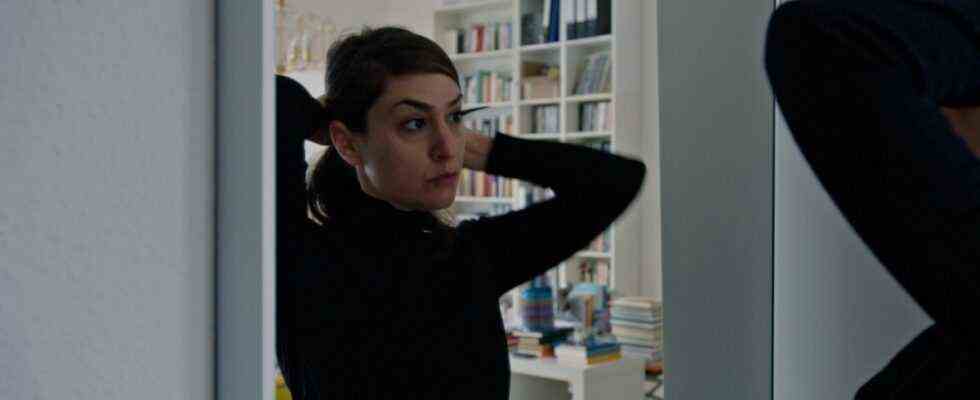“Man is nothing but the shape of the landscape of his homeland.” It once stood in front of the school in Petach Tikwa, one of the oldest Jewish settlements in Palestine, today one of the largest cities in Israel. The parents of the students from back then, born in the forties and fifties, came as children to the newly founded state, from the Middle East and from Europe as survivors of the Shoah, if they were not already born here – children of a new home that you with superstructures. It is man who first forms the home. And how can it be maintained otherwise than by a next generation of form-giving creatures?
In the 1980s this generation had children who went to schools like the one in Petach Tikwa and were supposed to continue their mission: a mission of hope and peace, the further building and defense of the country. One of these students is Yael Reuveny, who has become a great filmmaker. In her feature film debut, “Schnee von Gestern” (2014), she told the story of her family after the Shoah, based on the primal scene of a missed encounter. In the documentary “Children of Hope”, she extends the scope further. This time the primal scene is an old class photo that shows her with her comrades. After many years she meets them again and asks them to what extent the hopes directed towards their generation have shaped their lives. Life paths that always lead back to the life path of the homeland of Israel, which they shape. Or, who can say that, maybe deform it.
The director has lived in Berlin for a long time, and the outside view makes her film even more interesting
Reuveny is less a documentary filmmaker than a film essayist. She tells in the first person (from the off), asks questions and curiously observes how the answers become more and more complicated. The filmmaker’s position is a special one: unlike her old friends, she has lived in “exile” in Berlin for a long time and shows her life there with her (German) family there. In addition, she has no children of her own, which, in connection with her adopted home, from which her grandparents once fled, she describes as a kind of “betrayal” to Israel.
However, it is precisely this double “betrayal” that first opens the gaze of the outside observer and shows what connects the biographies of the friends who remained in Israel, it is the children who have almost all fathered or adopted them, if they do not suffer from having none . The state needs new children, otherwise it can give up: “2000 years of the diaspora entangled us all in a web of expectations and obligations.” In her film, Reuveny reveals how the personal and the political, family and state are inextricably linked. After the assassination of Yitzchak Rabin in 1995, the hoped-for peace for these children of hope moves into the unattainable distance, they are all more than ever predetermined for a life in which there is little room for things they wanted for themselves.
Because man is nothing but the shape of the landscape of his home. Unless man has a camera with which he gives form to the contradictions between man and home.
Children of Hope, D / I 2021. – Direction and script: Yael Reuveny. Film cinema text, 84 minutes. Theatrical release: November 4, 2021.

